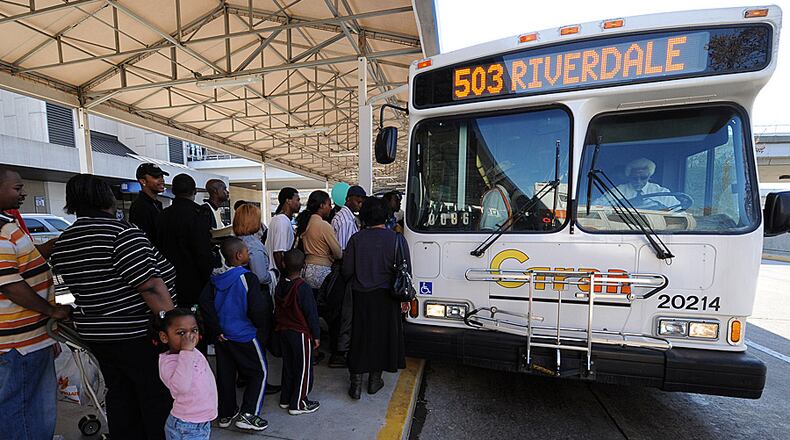MARTA Board members on Wednesday rejected a contract to provide bus service to Clayton County in exchange for a half-penny sales tax on the dollar, putting the county back where it started without any local public transportation unless Commissioners act to approve a full-penny sales tax before a Sunday deadline.
The MARTA board voted unanimously to reject the half-cent deal, saying it was unfair to existing jurisdictions of DeKalb, Fulton and the city of Atlanta who have been paying a one-cent sales tax for decades.
“At the present time we need to have those counties who are going to participate in our system to help maintain and improve our infrastructure of the rail,” said Harold Buckley Sr., who represents DeKalb County on the MARTA board. “In this particular instance, they are not taking that into consideration. We need the full one-cent sales tax in order for us to help improve the infrastructure so that when the rest of the county comes into the system we have a first-class rail system available for them to join.”
The MARTA board instead approved a one-cent sales tax agreement with Clayton County, putting the ball back in the county’s court. Now, Commissioners must either call another meeting to reconsider a full penny, or let the whole deal die.
The MARTA board is taking extraordinary step to reassure Clayton that its full penny, if approved, won’t go toward expanding transit services in other counties as some commissioners have feared. Included in MARTA’s contract offer is language that ensures unspent sales tax money collected in Clayton is kept in a separate escrow account, to be used only for the purposes of expanding “high-capacity passenger service” (ie: commuter or heavy rail) in Clayton.
That sends an important message, said MARTA Board Chairman Robbie Ashe: “We will promise you … that Clayton’s money will not be used for system expansion somewhere else.”
“That’s a protection that’s above and beyond what any other jurisdiction gets,” Ashe added.
Clayton County commissioners, in a 3-2 vote, voted Tuesday night to let residents decide on paying a half-penny sales tax to fund MARTA service in a Nov. 4 referendum. The half-penny sales tax is expected to generate about $25 million a year, whereas a full penny would generate about $49 million a year.
MARTA officials have said the half-penny would only be enough to fund robust bus service, not an expansion of rail.
Clayton Commissioners who rejected the full penny idea said they feared that a 1-cent sales tax hike might stifle business. They also were concerned that a rail expansion could take longer than the eight to 10 years and cost more than the $270 million to $350 million that MARTA officials had estimated.
Commissioners Shana Rooks and Chairman Jeff Turner argued passionately for the passage of a penny sales tax, but were outvoted by Michael Edmondson, Gail Hambrick and Sonna Singleton. It was not immediately clear whether Wednesday’s action by the MARTA board would sway any of the those three votes.
None of the commissioners attended the MARTA board meeting, but they were represented by Ed Wall, the county financial advisor, and Jack Hancock, the county’s lawyer.
“It would just be a shame the citizens of Clayton County don’t have the opportunity to vote to get mass transit service,” Wall said after the meeting. “I just don’t know.”
About the Author
Keep Reading
The Latest
Featured

